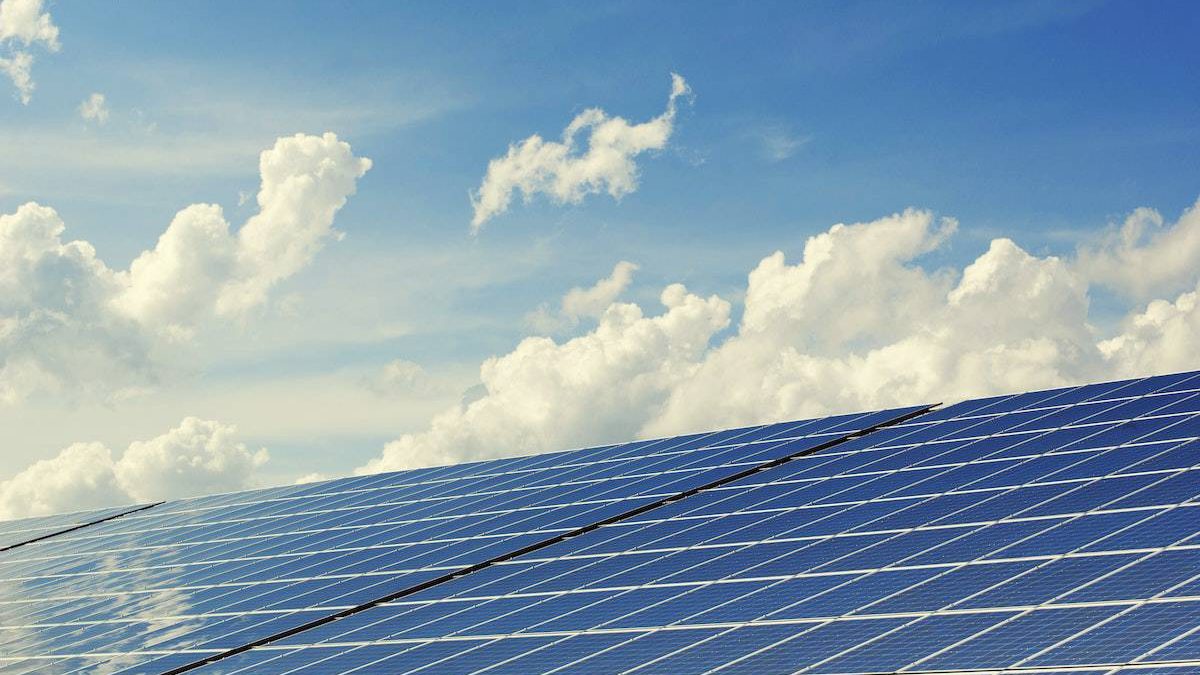Cooling our homes and offices on hot summer days is essential for comfort, but the traditional way of doing so often has a significant impact on the environment. Solar-powered air conditioning offers an alternative solution by harnessing the renewable energy from the sun to generate cooling in your home or office without producing greenhouse gas emissions. This system can be powered either directly or indirectly with photovoltaic cells which convert sunlight into electrical power used by the AC unit’s compressor. In addition to its environmental benefits, solar-powered AC units are typically much more efficient than their traditional counterparts – offering better temperature control while also saving money on energy costs in the long run.
Here we’ll take a look at some of the advantages and challenges of solar-powered air conditioning systems and how you can make the switch from traditional electric AC.
Table of Contents
1. How Solar-Powered Air Conditioning Works
At its core, a solar-powered AC unit is essentially an efficient heat pump that uses energy from the sun to generate cooling in your home or office. It works by transferring heat from inside the building to the outside air – much like standard air conditioning but without the need for electricity generated by burning fossil fuels.
This system can be powered either directly or indirectly by photovoltaic cells, which convert sunlight into electrical power used by the AC unit’s compressor and refrigerant circulators. Essentially, it uses sunlight to power your indoor air services.
2. Advantages Of Solar-Powered Air Conditioning
Solar-powered air conditioning has the potential to be much more eco-friendly and cost-effective than traditional AC units. By making use of renewable energy sources such as sunlight, households and businesses can reduce their reliance on electricity generated from non-renewable sources while also saving money on energy costs in the long term.
In addition, solar-powered AC systems tend to be more efficient due to the fact that they don’t lose as much heat when cooling a given area – this means that users can enjoy better temperature control without compromising performance or efficiency.
All things considered, switching to solar power for air conditioning can be a great way to help protect the planet while still keeping cool.
3. Potential Drawbacks Of Solar-Powered Air Conditioning
Though solar-powered AC units are a great way to reduce your energy bills and environmental footprint, there are a few potential drawbacks worth considering. One is the cost associated with installation and upkeep – retrofitting an existing system or installing a new unit can be expensive up front.
Additionally, in order for these systems to run optimally you’ll need to keep on top of regular maintenance tasks such as cleaning and checking connections – something that may not fit into everyone’s schedule.
Finally, since they rely heavily on sunlight, solar-powered AC systems may not work as well during periods when there is limited availability of direct sunlight.
4. Changing Over To Solar-Powered Air Conditioning
Making the switch from traditional electric air conditioning to a solar-powered system may seem daunting, but it doesn’t have to be. In fact, most people find the process surprisingly straightforward.
The first step is to determine the size and type of AC unit you need for your space – this will help you decide if a solar-powered unit is right for you.
Once that’s done, you can begin researching local installation companies and choosing the best option for your home or business.
With proper planning and research, making the switch to solar-powered AC can be a great way to reduce energy costs while helping the environment.
In Conclusion
Solar-powered air conditioning systems offer a more sustainable and cost-effective way to cool our homes and offices in comparison with traditional AC units. By tapping into the energy of the sun, we can reduce our reliance on electricity generated from non-renewable sources while also saving money on energy costs in the long run.
While there are some challenges to consider when it comes to installation and maintenance, solar-powered air conditioning is a highly viable option for those looking to reduce their carbon footprint and save money on energy bills.
Related posts
Sidebar
Recent Posts
The Best Forex Brokers for Beginners
Since COVID-19 first popped up, interest in the forex market has increased dramatically. Knowing how to get involved with minimal…
Maximizing Success: The Symbiosis of Dedicated Software Development Teams and Product Design Services
The Symbiosis of Dedicated Software Development Teams and Product Design Services In the rapidly evolving landscape of technology, businesses aiming…



